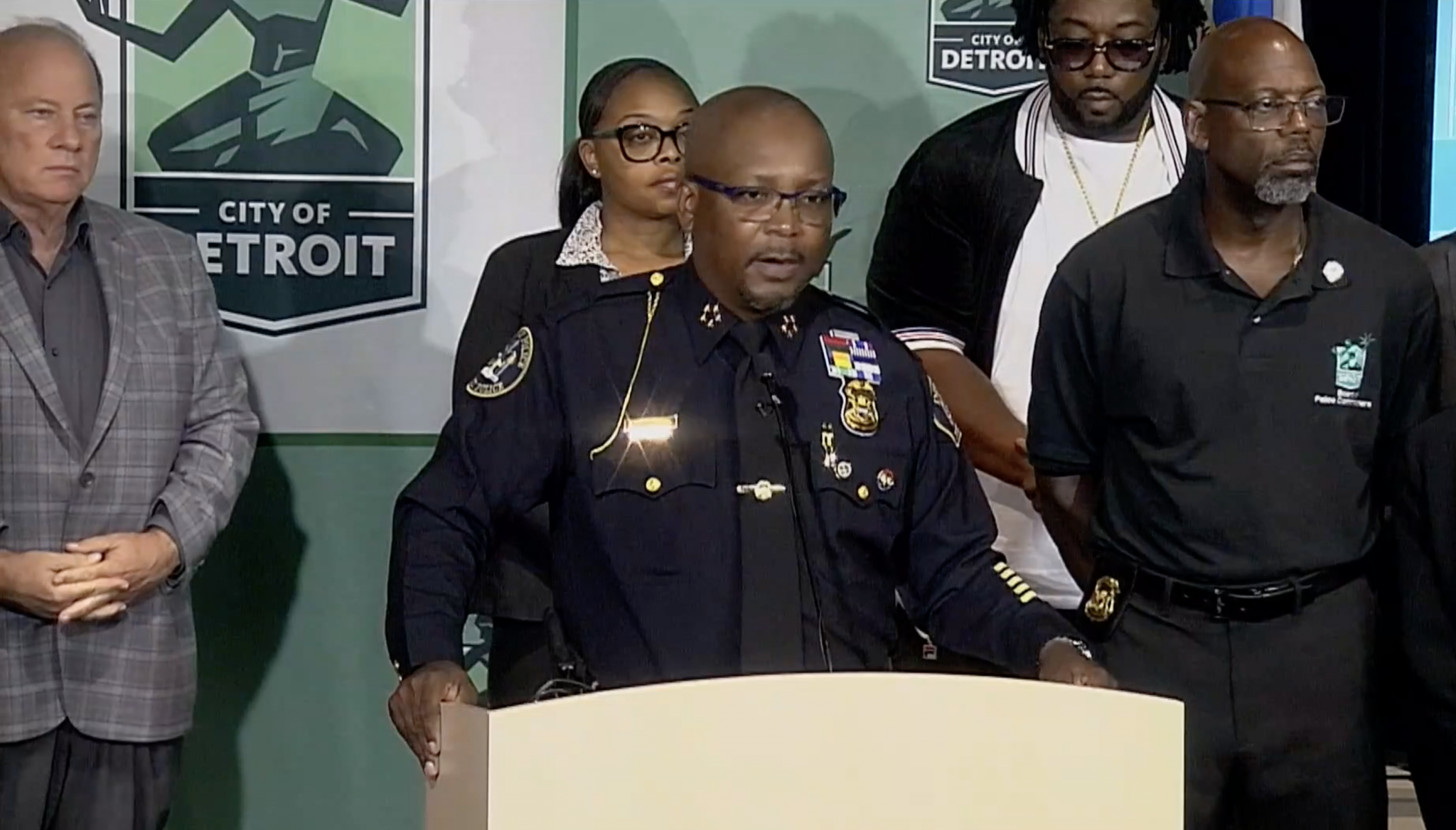Detroit Police announce new initiative to improve mental health crisis intervention
DPD plans to add more officers to the unit, as well as more social workers and less lethal weapons.

Detroit Police Department Police Chief James White on Aug. 29, 2022.
Detroit Police are struggling to handle calls involving people in mental health crisis. On Wednesday, they announced a new initiative to improve the Crisis Intervention Team.
DPD plans to add more officers to the unit, as well as more social workers, available in person or via video chat. Captain Tonya Leonard-Gilbert is helping run the program.
“We’re very excited about having our behavioral health specialists to respond with us and then when they are not corresponding with us in person we are onboarding a virtual assessment component,” Leonard-Gilbert says.
Detroit City Councilmember Gabriela Santiago Romero says Detroit Police are responding to 64 mental health calls a day. The behavioral health specialists who will help police with those calls will come from the Detroit Wayne Integrated Health Network, also known as DWIHN.
“Their partnership with DWIHN means that our nonviolent mental health calls will be directed to mental health care professionals that is able to de-escalate and give residents the care and support that they need,” Santiago Romero says.
Recently, Detroit Police have shot and killed two people while responding to calls for someone in mental distress. Both times the Crisis Intervention Team showed up. Chief James White says a lack of services has led to cops having to do something they’re not equipped to handle.
“We are not the mental health police but unfortunately this crisis has landed squarely in our lap,” White says.
Flush with state and federal money, the department is planning to add several less lethal weapons to their arsenal to reduce situations where officers use their gun. White says the department needs to use all available resources.
“We’re not asking officers to bring a rubber bullet to a gunfight, that’s completely unreasonable. But what we are saying is if there’s an opportunity to reduce the likelihood of death and violence in the encounter, certainly we want to take advantage of it,” White says.
Crisis response officers will sport a different look — wearing gray shirts instead of a traditional uniform, and their cars will have green lights instead of the usual flashing blue and red.
Trusted, accurate, up-to-date.
WDET strives to make our journalism accessible to everyone. As a public media institution, we maintain our journalistic integrity through independent support from readers like you. If you value WDET as your source of news, music and conversation, please make a gift today.

